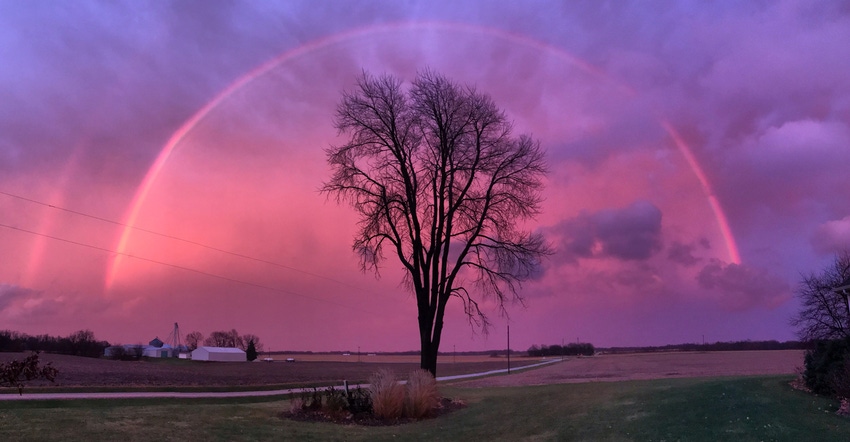November 12, 2020

Unease.
It’s the best word for what many of us have felt over the past month or so. Unease at what we hear from our leaders and unease at what we see on the news. And worse yet, unease at what we hear from our neighbors.
These days following the election have been rough. On the left, farmer-friends professed actual hate for every third-party voter — until their candidate pulled ahead. On the right, farmer-friends coalesced around their belief in a common enemy: the U.S. election system. And on both sides, folks decided if they didn’t like the news, they’d find some news that suited them better. Sadly, that wasn’t hard to do.
As a nation, we are more extreme in our views than ever before — and more extremely divided. Seventy-seven million people voted for Joe Biden and 71 million for Donald Trump. That’s a lot of people who disagree with each other, and profoundly so. Many of us have taken our votes and followed our favorite media right down our own protectionist holes.
Forget trade wars and pandemics. Right now, I’d argue polarization is the most dangerous thing in agriculture.
Case in point: the original Blue-Dog Democrat Collin Peterson, D-Minn., who lost his congressional race this month. Peterson chaired the House Agriculture Committee from 2007 to 2011 and again since 2019. He’s a 4-H kid who knows ag, and he’s worked hard to bridge the congressional divide between rural and urban interests.
Agriculture was on board with him. Peanut and cotton farmers came up to campaign for him, and farm lobby groups backed him. He joined just one other Democrat to vote against Trump’s impeachment. Nancy Pelosi listened to him.
Yet despite a bipartisan record, he lost to Trump-backed candidate and former Lt. Gov. Michelle Fischbach.
Agriculture needs democrats like Peterson. His loss is our loss.
Deepening divides
In fact, when Congress reconvenes in 2021, it will be without either head of the House and Senate ag committees. Senate Ag Committee Chairman Pat Roberts, R-Kan., is retiring this year.
As our policy editor Jacqui Fatka writes, “This presents an interesting dynamic on the work that may start for the next farm bill, which is set to expire in 2023. The traditional North versus South divide among leadership has also potentially shifted, with more Southern lawmakers taking top leadership roles on the committees.”
The rural versus urban divide has deepened as well. In Congress, only 45 of the 435 House members have districts with more than 20,000 farm operators. Peterson shared recently that it’s tough to find Democrats who even want to serve on the ag committee.
You can see it back home, too. Urban and suburban decision-makers are less likely to take rural interests into account. Rural people feel underrepresented. Meanwhile, urban folks can’t figure out why the Electoral College is still a thing, and few are concerned about the regulations and taxes affecting the people who grow their food.
And even though the Democrats won the White House, Biden voters still need to come to grips with the fact that Donald Trump got over 71 million votes. That’s a statement that can’t be ignored.
Listen up
Somewhere in the last couple of years, we stopped listening to each other. And if the Black Lives Matter protestors and the Trump flags on combines have anything in common, it’s that people deeply want to be heard.
So maybe that starts at home. Maybe it starts with laying down your social media cross and listening to people who disagree with you. Try to understand where they’re coming from. Maybe they’ll do the same for you.
In my conversations with Orion Samuelson this month (stay tuned for our December cover story), he shared how he used to spearhead a farm-city exchange program. A farm family came to stay with a city family and learn about their life. The city family went to stay on the farm and learn what their life is like.
It was a good idea back then, and it’s a good idea today. And it sure seems like a better idea than shouting at each other and retreating into our own media foxholes.
Comments? Email [email protected].
You May Also Like




